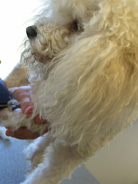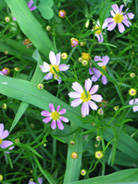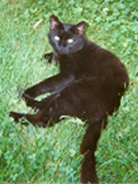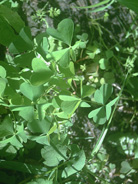 |

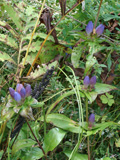 |
Herbalism
“Let your food be your medicine and your medicine be your food.” -Hypocrates
Herbalism is the study of plants used for healing or maintaining health. Plants are extremely important in our lives. They provide oxygen for the air we breathe. They give us our food. We also get medicine from plants. Before there were supermarkets or farms, people picked wild nuts, fruits, berries, leaves and roots of certain plants for food. Plants also provide beverages, clothing, soap, dyes, paper, cosmetics, culinary spices, and many other things.
Many of the world’s cultures still use botanicals as their predominant form of medical treatment. Herbs have been used from the beginning of time and are our oldest form of healing. Many culture world wide still look to plants for their medicine.
By the 1930s, western medicine was turning toward synthetic drugs as replacements for herbal preparations. 70-80% of synthetic pharmaceutical drugs are made from plants. Herbs were the original source of many pharmaceutical drugs. Meadowsweet and white willow bark are one example. Scientists isolated one part of these plants to create today’s aspirin (Salicylic acid). When used in this way “aspirin” can cause side effects, including ulcers. The plant has many other constituents that when taken in its whole form rarely creates the same problems its one active constituent alone may cause.
One cannot deny the benefits of conventional medicine, especially in life-threatening conditions. While the quick action of drugs are often necessary to relieve an acute condition short term, the negative side effects and contraindications for their use in the long term are well known and documented (ex: corticosteroid hormones, antibiotics).
There are many conditions, which will benefit from herbal remedies for mid- and long-term treatment. Correctly prescribed herbal treatments will treat the cause of the problem, stimulate, and assist the body in the healing process with virtually no risk of complications.
Herbal medicine can work side by side with conventional medicines and has often been effective as a cure when all other avenues have failed.
How do Herbs work?
Herbs support the body’s ability to heal itself by cleansing and strengthening body systems. Herbs can range from food herbs to medicinal herbs.
Food herbs nourish and tone the body. They provide vitamins and minerals in plant form that are highly absorbable, and support and maintain the body’s own efforts to defend itself from dis-ease. They are mild in action and can be eaten raw, cooked, etc., in salads and food dishes (ex: nettles, dandelion).
The strong medicinal herbs are specific in action and provide quick results. Certain plants can be toxic for both humans and animals.
The best ways to use herbs are:
|
Herbs can be used in many forms. Herbal teas are the most common. Herbal powders, capsules, tinctures, infused oils, flower essences, and essential oils are other forms commonly used. The best medicine is to be able to go out into your back yard, harvest a plant and make your own preparations!
As an herbal educator it is important for me to teach people how to make and use their own medicine. I teach people how to identify plants, use the correct plant part, and show them how to make and use their herbal preparations for both themselves and their animals. It is important to teach people the importance of protecting all plant species so that we can ensure their survival and continued availability.
In helping to heal myself, and others, I have found the plants to be invaluable as healers, teachers and friends. As I help others in my work, it is my goal to teach and empower them to take charge of their own bodies and health.
Please see Consultations page for a more information on how Herbalism is used into your personal preventive health care consultation, and to schedule an appointment with Kelley.
Common Nutritious, Edible Herbs, For Our Health
For a complete description, see Wild Edibles under Health Articles
| Amaranth Burdock Cattail Chickory Clover Comfrey Dandelion Daylilly Fiddleheads Ground Ivy Lamb’s Quarters Milkweed |
Mallow Mustard Nettles Plaintain Purslane Violet Sheep Sorrel Shepard’s Purse Thistles Wild Carrot Wild Leek Wild Lettuce |
As we walk through the gardens and fields we create a strong path of connection to the natural healing power of the Mother Earth. Herbs have many special gifts. They are like secrets waiting to be discovered. Once you learn the special secrets of each, they are your friends for life.
Please view the Consultations page for information on Kelley’s Preventive Health Care consultations and to make an appointment!
